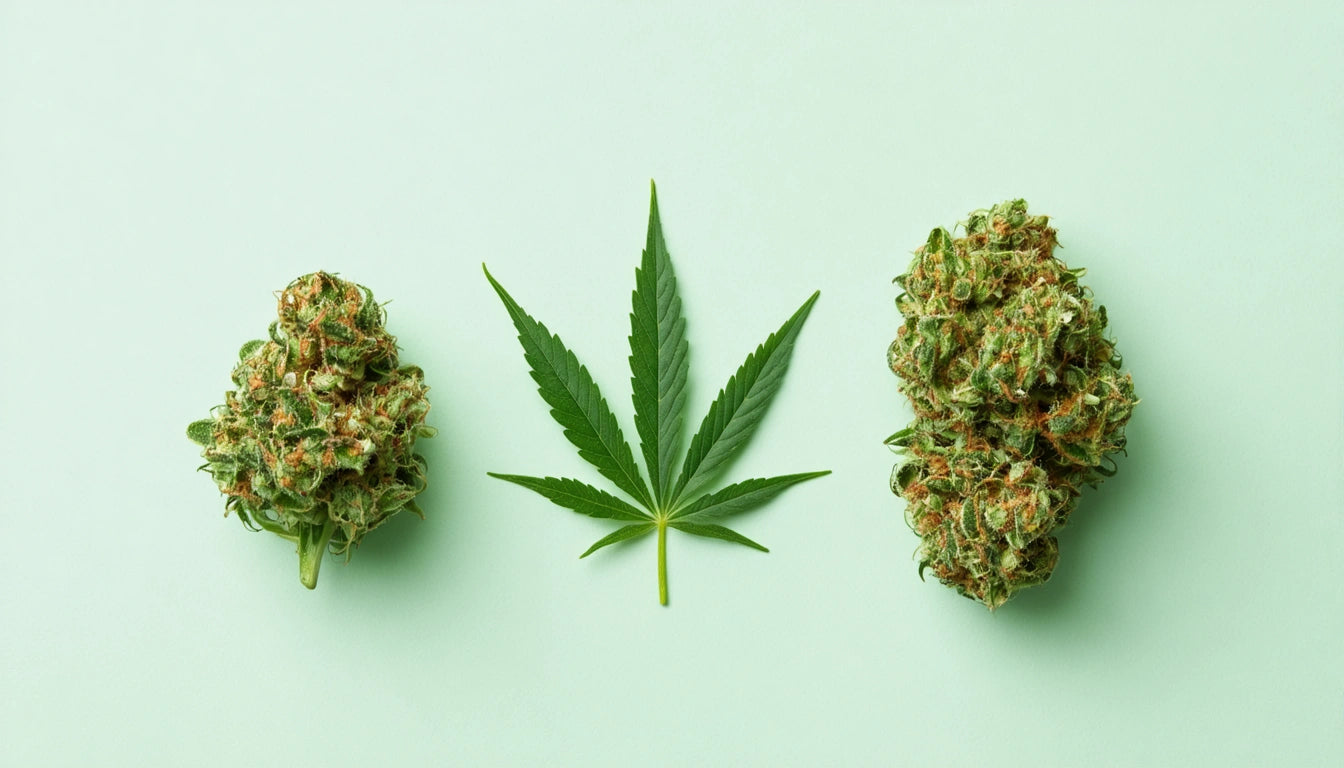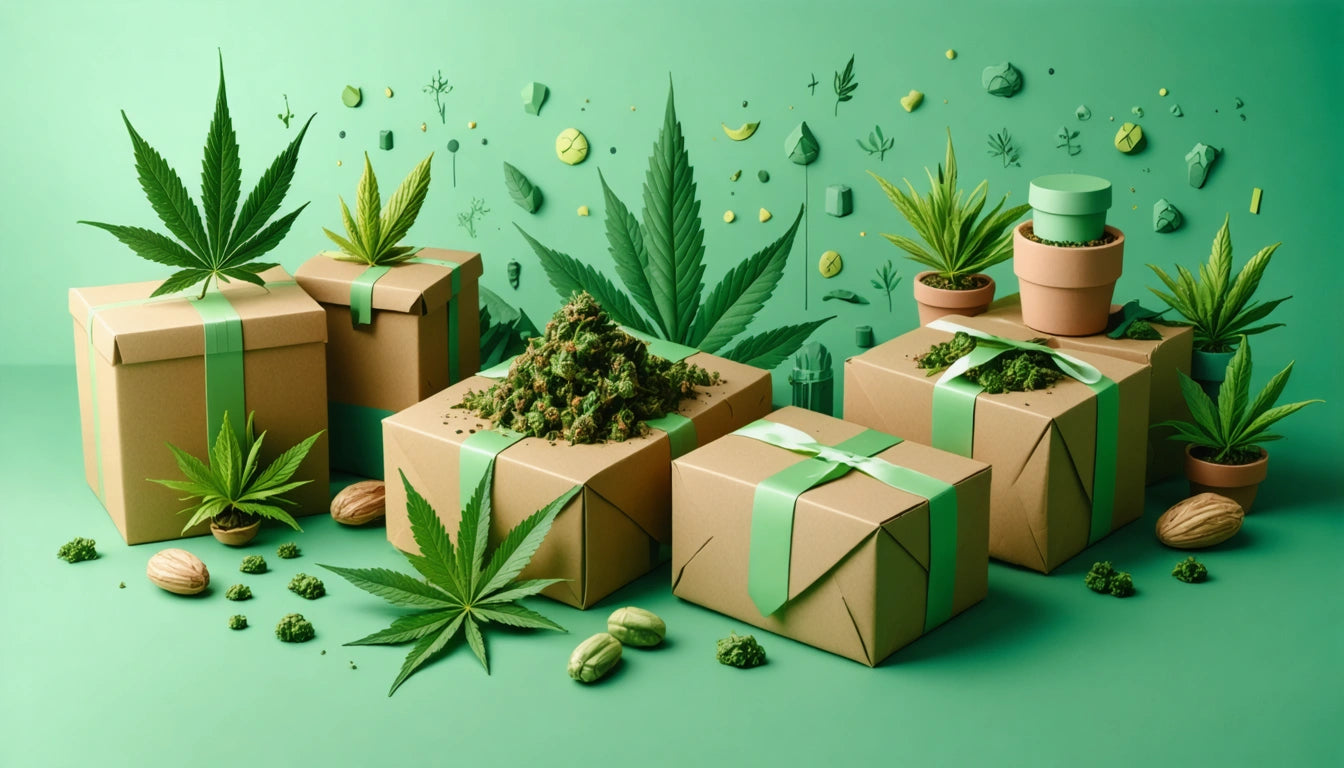Table of Contents
- What is Delta THC: Understanding the Basics
- Delta Variants Compared: Delta 8, 9, and 10
- THC Content Levels in Different Delta Variants
- Effects and Experience: What Delta THC Highs Feel Like
- Testing and Detection: Do Delta Products Show Up on Tests?
- Legal Considerations for Delta THC Products
- The Future of Delta Cannabinoids in Cannabis Industry
Understanding Delta THC: Differences, Effects, and THC Content in Delta 8, 9, and 10
The cannabis industry has evolved significantly with the emergence of various delta THC compounds that offer different experiences and benefits. Understanding what delta THC is and how its variants differ is crucial for both consumers and industry professionals. This comprehensive guide explores the differences between Delta 8, Delta 9, and Delta 10 THC, their effects, THC content, and legal status.
What is Delta THC: Understanding the Basics
Delta THC refers to tetrahydrocannabinol compounds that differ in the placement of a double bond in their chemical structure. The most common and well-known is Delta 9 THC, the primary psychoactive compound in traditional cannabis. However, other variants like Delta 8 and Delta 10 have gained popularity for their unique properties.
These compounds interact with the body's endocannabinoid system but produce different effects based on their molecular structure. Understanding delta THC variants helps consumers make informed choices about cannabis products.
Delta Variants Compared: Delta 8, 9, and 10
Delta 9 THC
Delta 9 THC is what most people refer to when they mention THC. It's the primary psychoactive component in cannabis and produces the traditional "high" associated with marijuana use. Delta 9 has the strongest psychoactive effects among the delta variants and is the most regulated.
When asking "does delta 9 have THC," it's important to understand that Delta 9 is THC—specifically, it's Delta 9 tetrahydrocannabinol. This is the compound measured when cannabis products are tested for potency.
Delta 8 THC
Delta 8 THC is an isomer of Delta 9, with the double bond on the 8th carbon chain instead of the 9th. This slight difference creates milder psychoactive effects. Many users report that Delta 8 provides a clearer high with less anxiety and paranoia than Delta 9.
For those wondering "does delta 8 have THC in it" or "is delta 8 CBD or THC," the answer is that Delta 8 is a form of THC, not CBD. It's chemically distinct from both Delta 9 THC and CBD, offering effects that fall somewhere between the two.
Delta 10 THC
Delta 10 is one of the newer cannabinoids to enter the market. With the double bond on the 10th carbon chain, it produces even milder effects than Delta 8. Users often report that Delta 10 creates a more energizing, sativa-like experience compared to the more relaxing effects of Delta 8.
Highlight: While all delta THC variants can produce psychoactive effects, their potency and experience differ significantly, with Delta 9 being the strongest, followed by Delta 8, and then Delta 10.
THC Content Levels in Different Delta Variants
Understanding how much THC is in each delta variant helps consumers gauge potential effects and choose appropriate products. When considering "how much THC is in delta 8" or similar questions, it's important to understand both the inherent potency and typical product concentrations.
- Delta 9 THC: Traditional cannabis products typically contain 15-30% Delta 9 THC, though some premium strains may reach higher levels.
- Delta 8 THC: Delta 8 products generally contain 10-20% Delta 8 THC. The compound itself is approximately 50-75% as potent as Delta 9 in terms of psychoactive effects.
- Delta 10 THC: Products featuring Delta 10 typically contain lower concentrations, around 5-15%. The compound is estimated to be about 20-30% as potent as Delta 9 THC.
For manufacturers working with these compounds, precision filling equipment for cannabis products is essential to ensure consistent dosing and compliance with labeling requirements.
Effects and Experience: What Delta THC Highs Feel Like
A common question is "does delta 8 THC get you high" or what the experience feels like compared to traditional cannabis. Each delta variant offers a distinct experience:
Delta 9 THC Experience
Delta 9 produces the classic cannabis high, characterized by:
- Strong euphoria and mood elevation
- Heightened sensory perception
- Potential for anxiety or paranoia at higher doses
- Significant relaxation or sedation (especially with indica strains)
- Altered time perception
Comparing Delta 9 to traditional cannabis shows they're essentially the same in terms of effects, as Delta 9 is the primary active compound in traditional cannabis.
Delta 8 THC Experience
When considering what a Delta 8 THC high feels like, users typically report:
- Milder euphoria compared to Delta 9
- Clearer headspace with less cognitive impairment
- Reduced anxiety and paranoia
- More body-focused effects
- Greater functionality during the experience
Understanding the differences between Delta 8 and traditional THC helps consumers choose products that match their desired experience.
Testing and Detection: Do Delta Products Show Up on Tests?
Many consumers ask "does delta 8 test positive for THC" or whether delta 9 shows up as THC on drug tests. The answer is generally yes—most standard drug tests cannot distinguish between different delta variants.
Drug tests typically look for THC metabolites, particularly 11-nor-9-carboxy-THC (THC-COOH). All delta THC variants produce similar metabolites that will trigger a positive result on standard tests. This is important to understand for those subject to workplace drug testing or other screening programs.
For those asking about Delta 9 carboxy THC, this refers to the metabolite (THC-COOH) that forms after the body processes Delta 9 THC and is what most drug tests detect.
Legal Considerations for Delta THC Products
The legal status of delta THC products varies significantly:
- Delta 9 THC: Federally illegal in the US when derived from marijuana, though legal in states with recreational or medical cannabis programs. Hemp-derived Delta 9 products containing less than 0.3% THC by dry weight are federally legal under the 2018 Farm Bill.
- Delta 8 THC: Exists in a legal gray area. Technically legal at the federal level when derived from hemp and containing less than 0.3% Delta 9 THC, but several states have specifically banned it.
- Delta 10 THC: Similar to Delta 8, it exists in a legal gray area with state-by-state restrictions.
These complex regulations make compliance challenging for manufacturers and retailers. Understanding whether products like Delta 8 gummies have THC (they do, specifically Delta 8 THC) is crucial for proper labeling and marketing.
The Future of Delta Cannabinoids in Cannabis Industry
The delta THC market continues to evolve as research advances and regulations develop. Emerging cannabinoids like Delta 11 THC are being studied for their unique properties. Delta 11 THC is believed to be more potent than Delta 9 but is not yet widely available in commercial products.
Another important aspect is the conversion process, such as when THCA turns into Delta 9 when smoked or heated (decarboxylation). This process is fundamental to cannabis consumption methods and product development.
As the industry matures, expect more refined products targeting specific effects through precise cannabinoid ratios and improved extraction technologies. The growing interest in minor cannabinoids suggests a future where cannabis products are increasingly tailored to specific needs and experiences rather than simply maximizing THC content.











Leave a comment
All comments are moderated before being published.
This site is protected by hCaptcha and the hCaptcha Privacy Policy and Terms of Service apply.